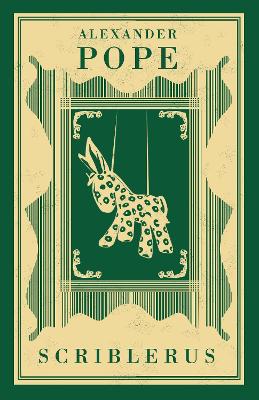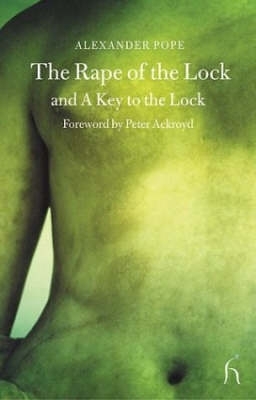Hesperus Classics
2 total works
Alexander Pope was, at one time, the world’s most celebrated poet. His trenchant satirical works – in which the foibles of all the critics, hacks and bad poets of his day are exploded – and his masterful heroi-comic poem
The Rape of the Lock continue to inspire generations of writers and readers to this day. Alongside his more prominent poetical production, Pope engaged with some of the sharpest wits of his era – including Jonathan
Swift and John Gay, the author of The Beggar’s Opera – in writing a number of satirical prose works, of which
Scriblerus is perhaps the greatest achievement.
As he prepares to become father for the fi rst time, the scholar Cornelius is determined to settle on nothing less than a child of the “learned sex” – a boy – and give him the most thorough education so that he can become the greatest critic who ever lived. An account of the birth, the infancy, the schooling, the diet-planning, the unconventional love affairs and the attainments of this child prodigy,The Memoirs of Martinus Scriblerus
is surely the funniest imaginary biography ever written.
The Rape of the Lock continue to inspire generations of writers and readers to this day. Alongside his more prominent poetical production, Pope engaged with some of the sharpest wits of his era – including Jonathan
Swift and John Gay, the author of The Beggar’s Opera – in writing a number of satirical prose works, of which
Scriblerus is perhaps the greatest achievement.
As he prepares to become father for the fi rst time, the scholar Cornelius is determined to settle on nothing less than a child of the “learned sex” – a boy – and give him the most thorough education so that he can become the greatest critic who ever lived. An account of the birth, the infancy, the schooling, the diet-planning, the unconventional love affairs and the attainments of this child prodigy,The Memoirs of Martinus Scriblerus
is surely the funniest imaginary biography ever written.
When Lord Petre had the effrontery of cutting off a lock of Lady Arabella Fermor's hair, a veritable war erupted between the two noble families. A mutual friend, saddened by their estrangement, asked Alexander Pope, then a young poet, to write a poem about it, in order to make a joke of it and "laugh them together again". But the result - which in its ingenuity and poetical brilliance reaches peaks of epic sublime - concealed darker and more dangerous undertones that unleashed an even greater storm between the parties involved - and among the whole literary world of the time.
As Belinda glides along the Thames admired for her beauty and the crafty Baron schemes to take his prize, a host of supernatural beings - elfs, sylphs, gnomes - dance around them to avoid the impending doom, in what is Pope's crowning poetical achievement and perhaps the greatest satirical poem ever written. Included in this volume are the original two-canto version of The Rape of the Lock and Pope's hilarious mock-interpretation of the poem as a seditious work, A Key to the Lock.
As Belinda glides along the Thames admired for her beauty and the crafty Baron schemes to take his prize, a host of supernatural beings - elfs, sylphs, gnomes - dance around them to avoid the impending doom, in what is Pope's crowning poetical achievement and perhaps the greatest satirical poem ever written. Included in this volume are the original two-canto version of The Rape of the Lock and Pope's hilarious mock-interpretation of the poem as a seditious work, A Key to the Lock.

